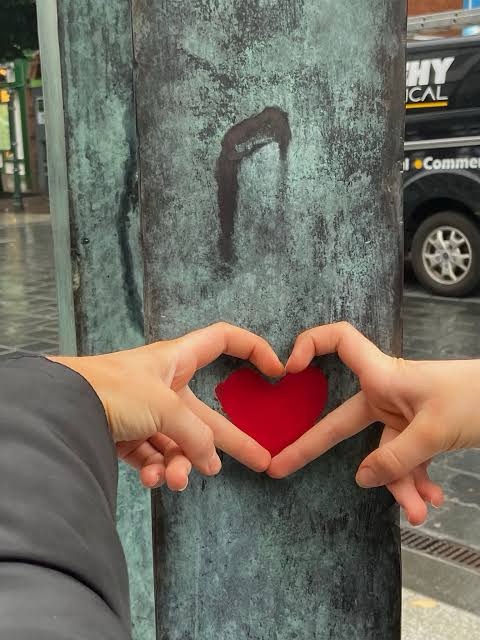
Entering a relationship can be one of the most fulfilling experiences in life. The connection, the shared memories, and the deep emotional bond you form with your partner are invaluable. However, amidst the excitement and passion, it’s easy to lose sight of one crucial element: your own identity. Maintaining your individuality while being in a relationship is not only possible—it’s essential for the long-term health of both you and your partnership.
Here’s how to nurture your sense of self while growing closer to your partner:
1. Understand the Importance of Self-Identity
Your identity is the core of who you are—it encompasses your values, passions, goals, and the things that make you unique. When you lose touch with this, you risk sacrificing not only your sense of self but also the depth and authenticity of your relationship. Healthy relationships are built on two people who are whole and confident in themselves, not on one person subsuming their identity for the sake of the relationship.
Recognize that your partner’s love should complement your sense of self, not replace it. When you remain grounded in who you are, you bring your best, most authentic self to the relationship, which ultimately strengthens the connection you share.
2. Keep Pursuing Your Passions
One of the most important ways to maintain your identity is by continuing to engage in the activities that make you feel alive—whether it’s a hobby, career goal, or creative project. A relationship should be an extension of your life, not its entire focus. If you were passionate about painting, hiking, or playing an instrument before you met your partner, don’t let those interests fade away.
By nurturing your passions, you’ll not only stay true to yourself, but you’ll also have more to share with your partner, enriching the relationship with new experiences and perspectives. It’s crucial to carve out time for yourself to pursue what makes you feel fulfilled, independent of your partner’s needs and desires.
3. Set Boundaries
Healthy relationships thrive on mutual respect, and that includes respecting each other’s individual space and boundaries. Setting clear boundaries doesn’t mean being distant or emotionally unavailable; it simply means recognizing and asserting your needs in a way that honors both you and your partner.
For example, if you need time alone to recharge, communicate that without guilt. If you need space to focus on a personal project, make sure your partner understands why that’s important to you. Boundaries help prevent feelings of resentment and create an environment where both partners feel heard and supported in their personal growth.
4. Cultivate Your Own Social Circles
While it’s wonderful to share friendships and social activities with your partner, maintaining your own social circle is vital for keeping your identity intact. If you spend all your time with your partner’s friends or in their social network, it can be easy to blur the lines between your individuality and your partner’s world.
Make time to nurture your own friendships and connect with people outside of your relationship. This ensures that you remain well-rounded and have different sources of support and joy. Your social life shouldn’t revolve solely around your partner’s interests or friends—it should be a reflection of your own.
5. Communicate Openly
Maintaining your identity doesn’t mean you should be entirely self-reliant or avoid compromise; it means communicating your needs and desires clearly with your partner. Open communication fosters understanding and trust, and it’s key to ensuring that both partners feel valued as individuals.
If you feel that your identity is being compromised, have an honest conversation about it. Likewise, listen to your partner’s needs and concerns. A healthy relationship allows both individuals to thrive while supporting each other’s personal growth.
6. Embrace Change, But Stay True to Core Values
Relationships naturally cause both individuals to evolve. Over time, you might develop new interests, change your opinions, or grow in different directions. This is normal, and part of life’s journey. However, it’s crucial to stay true to your core values, as these form the foundation of your identity.
While being open to change is important, don’t lose sight of your most fundamental beliefs and desires. If your relationship starts to demand that you change who you are at the core—whether it’s suppressing your values or abandoning personal goals—it’s essential to evaluate if that relationship is still healthy for you.
7. Encourage Your Partner to Maintain Their Identity
A relationship is a two-way street, and part of supporting each other is encouraging your partner to maintain their own identity as well. Celebrate their successes, encourage their passions, and respect their need for independence. By doing so, you help create a dynamic where both of you can flourish as individuals while deepening your connection as a couple.
When both partners retain their individuality, the relationship becomes more of a partnership—two strong, independent people coming together to create something greater than the sum of its parts.
8. Balance Togetherness and Independence
Every relationship requires a balance of togetherness and independence. Too much togetherness can lead to dependency, while too much independence can breed emotional distance. The key is to find a healthy equilibrium where you can both enjoy time together and also have space to be yourselves.
It’s okay to spend time apart, whether it’s pursuing personal hobbies, going on solo trips, or simply having quiet moments alone. These moments of solitude will recharge you, giving you the energy to engage more fully in your relationship when you’re together.
Conclusion
Maintaining your identity while in a relationship is not only possible, it’s essential for a healthy, long-lasting partnership. By staying true to yourself, setting boundaries, nurturing your passions, and communicating openly, you ensure that your relationship remains a source of growth, support, and fulfillment for both you and your partner. Remember, the best relationships are built on two individuals who bring their whole, authentic selves to the table—growing together, but never losing sight of who they are.
Tags:
Subscribe To Get Update Latest Blog Post
No Credit Card Required



